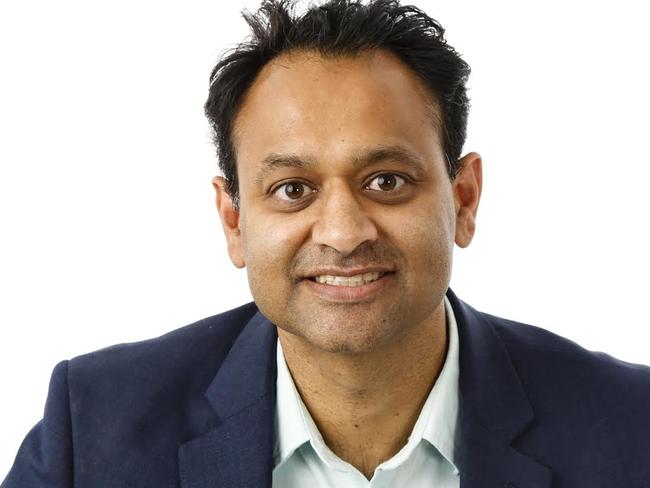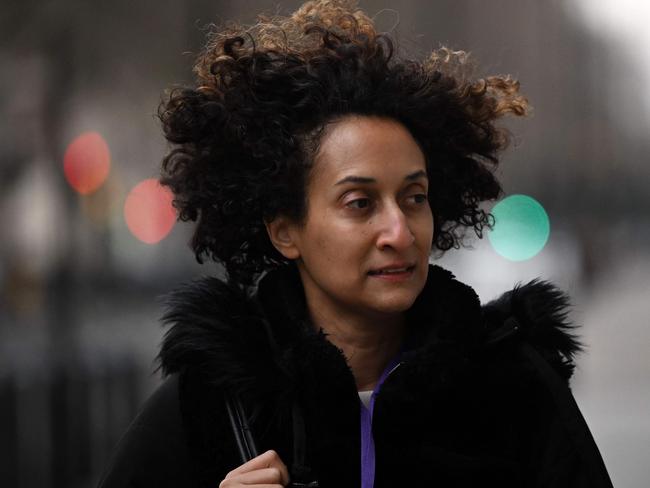Parents, schools passing the buck on discipline to doctors
As our teachers grapple to retain control of some of the world’s most disruptive classrooms, experts say issues of discipline are becoming increasingly medicalised.
Education
Don't miss out on the headlines from Education. Followed categories will be added to My News.
Parents and schools are passing the buck of bad behaviour onto the medical profession, a pre-eminent child psychiatrist has argued, as the nation’s teachers grapple to retain control of some of the world’s most disruptive classrooms.
Western Sydney psychiatrist and author Dr Tanveer Ahmed says issues of discipline are becoming increasingly medicalised, while many of the students who do need a diagnosis face stigma and shame from their own families – particularly in migrant communities.
“There’s a lurch to calling all difficult behaviours ‘disability’.
One in four kids is labelled as having a disability and that’s getting a bit ridiculous. It’s becoming too mainstream,” he said.
“There’s too much of an expectation on schools and teachers to sort out what are often wider social problems, and many of them – understandably – are going ‘this is too much’ and then trying to outsource it to my sector.”

Parents are often the biggest barrier to teachers implementing stricter policies on behaviour, Dr Ahmed said, especially in public schools.
Meanwhile, discipline is “one of the single biggest factors” why non-government schools are becoming increasingly popular.

Enrolments in independent schools alone have grown by 12.5 per cent since 2018, compared an increase of just 1.9 per cent in the public sector.
“(Parents) feel like teachers spend too much time on the troubled kid in the public system,” Dr Ahmed said.
“We’re stigmatising anything that seems punitive … (but) trying to be overly caring and compassionate just ends up harming some of these kids.”
One in 25 students in NSW public schools were suspended at least once in 2021, the most recent year for which data is available, and 182 pupils expelled.

In Victoria, 125 students were expelled. 5548 South Australian students were suspended in 2022, or 3.2 per cent of enrolments, while 83,093 Queensland kids were disciplined with a school absence in 2021.
The dire state of discipline in Australia, which is ranked 70th of 77 countries assessed by the OECD’s 2018 Program for International Student Assessment, has prompted a senate inquiry to examine the impacts on Aussie kids’ literacy and numeracy skills.
Centre for Independent Studies education policy director Glenn Fahey said students who are already disadvantaged are the ones who face the worst consequences of poor discipline.
“We have some of the most disrupted and disorderly classrooms in the world, which means we lose significant teaching time towards managing that disruption. The impact is that students in disrupted classrooms learn less, and spend less of their class time engaged in active learning activity,” he said.
“By the age of 15, children who are in more disruptive classrooms are around nine months behind their peers.”

UK school principal Katharine Birbalsingh, often branded Britain’s strictest headmistress, believes she’s got a proven and punitive method of getting kids back on track, no matter their social class or culture.
At Michaela ‘free’ school, chatter in the school corridors between lessons is forbidden. Students can be given a detention if they fail to turn up with the right equipment, or fidget too much with their pens and pencils. Classes line up in rows in silence, military style, before they enter the room.
“What that means is your more vulnerable kids, your more disadvantaged kids are kept on the boat, and they’re all sailing forward with purpose and determination,” Ms Birbalsingh explained.
Her students are “really happy”, and they’re also picking up some of the best marks in England.
Ms Birbalsingh believes Australian teachers need to be more confident rejecting ‘progressive’ pedagogies, and she wants to get educators here talking about the ideals of traditional teaching and discipline.
“It’s our role as adults to envelop children in a safe and secure environment which allows them to answer questions in class and not be bullied by other children,” she said.
“We need to make it so that teachers don’t feel bad about disciplining children. Being strict is somehow being seen to be mean, when actually strict is filled with love.
“When you love children, you love them enough to hold your standards high for them, and that means you need a system of both praise and punishment.”





